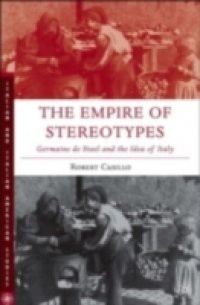In Corinne, or Italy, as in On Literature, Germaine de Stael not only draws from the tradition of Northern European stereotypes of Italy and the Italians, but transmits their influence to nineteenth-century writers and artists. These ambiguous and typically negative representations, which are examined historically in the works of travel writers over nearly three centuries, are shown to be in many instances more than simply subjective constructs, but rather the partial consequence of the decline of Italy from the later seventeenth century up to the Risorgimento. Their deeper implications are considered in relation to prior studies of the Italian national character by Leopardi, Barzini, Bollati, Sciolla, and Tullio-Altan, Burke?s ?historical anthropology of modern Italy,? Norbert Elias?s formulation of the ?civilizing process,? and various theories of alterity and violence, including those of Said, Bakhtin, Natalie Zemon Davis, and Rene Girard.

